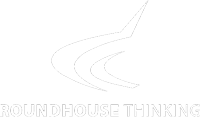Organisation
Being organised and efficient is an important trait for many types of managers. Employee information and records must be accessible and up to date, as well as meetings being scheduled with special thought given to the work and responsibilities of employees and other managers. Other issues handled by HR, such as salary negotiation, company benefits or termination, all require a HR department to respond in an efficient and accessible manner.
Discretion
HR managers are responsible for the personal information of every employee that is employed, or has been employed, at an organisation. Some of this information can be particularly confidential and it is important for HR professionals to keep information private and protected. HR managers need to have the discretion to keep personal information private and out of public knowledge.
Communication
Strong written and verbal communication skills are extremely important aspects of a HR professional, as it is his or her responsibility to clearly relay information to employees of the business. Whether it’s sending correspondence to prospective employees, preparing a speech on employee safety, conducting an exit interview or organising training, HR managers need to be comfortable speaking clearly, effectively and confidently.
Multi-tasking
HR is a field with varied responsibilities, and these can change from day-to-day. Being reactive to changes such as managing job advertisements, compensation, interviews, grievances and training programmes, time management is essential as well as multi-tasking to ensure performance is met to a high standard. Remaining calm under pressure is vital, especially when pressure comes from a group of employees regarding a particular concern or from a manager who has an issue with something work related.
Conflict Management
Addressing grievance between employees and managers, or perhaps between different employees, is another one of the core responsibilities of HR professionals. A HR manager should have skills such as negotiation, mediation and patience and be able to use them to help others. Problem solving is often a desired skill which is required in the workplace, and HR managers should be able to approach these situations with confidence and maturity.
Don't forget to follow us @RHThinking!


